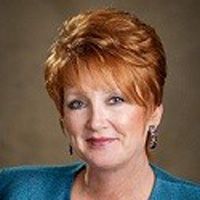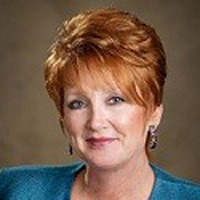Does Your 401(k) Come with a Self-Directed Brokerage Account Option?
How to utilize and capitalize on self-directed brokerage accounts within your 401(k) plan. More options may offer more possibilities.


Profit and prosper with the best of Kiplinger's advice on investing, taxes, retirement, personal finance and much more. Delivered daily. Enter your email in the box and click Sign Me Up.
You are now subscribed
Your newsletter sign-up was successful
Want to add more newsletters?

Delivered daily
Kiplinger Today
Profit and prosper with the best of Kiplinger's advice on investing, taxes, retirement, personal finance and much more delivered daily. Smart money moves start here.

Sent five days a week
Kiplinger A Step Ahead
Get practical help to make better financial decisions in your everyday life, from spending to savings on top deals.

Delivered daily
Kiplinger Closing Bell
Get today's biggest financial and investing headlines delivered to your inbox every day the U.S. stock market is open.

Sent twice a week
Kiplinger Adviser Intel
Financial pros across the country share best practices and fresh tactics to preserve and grow your wealth.

Delivered weekly
Kiplinger Tax Tips
Trim your federal and state tax bills with practical tax-planning and tax-cutting strategies.

Sent twice a week
Kiplinger Retirement Tips
Your twice-a-week guide to planning and enjoying a financially secure and richly rewarding retirement

Sent bimonthly.
Kiplinger Adviser Angle
Insights for advisers, wealth managers and other financial professionals.

Sent twice a week
Kiplinger Investing Weekly
Your twice-a-week roundup of promising stocks, funds, companies and industries you should consider, ones you should avoid, and why.

Sent weekly for six weeks
Kiplinger Invest for Retirement
Your step-by-step six-part series on how to invest for retirement, from devising a successful strategy to exactly which investments to choose.
Since the virtual disappearance of the defined benefit pension, many employers have offered employees 401(k) plans, which are defined contribution plans. Under 401(k)s, employees can contribute a certain portion of their wages on a pretax basis and invest those funds. In many cases, the employer will match these funds.
The plan provider has chosen a menu of investments for the participant to choose from, but the latest development in this plan is the arrival of the self-directed brokerage 401(k) account as an investment option (SDBA). This kind of account can offer exciting new opportunities to plan participants, but it also increases the risk to the investor, so it is crucial to understand the plan to enable the most success.
What are my investment choices now?
Since 1980 when 401(k)s first went into effect, 401(k)s have generally been offered to employees with a limited palette of investment options. Most employers try to offer a variety of investment choices that are diversified, because they have to follow the rules and regulations under the Employee Retirement Income Security Act (ERISA), but many plans come up short. The employee does not have input into these choices, so they can only make selections within the limited menu offered.
From just $107.88 $24.99 for Kiplinger Personal Finance
Become a smarter, better informed investor. Subscribe from just $107.88 $24.99, plus get up to 4 Special Issues

Sign up for Kiplinger’s Free Newsletters
Profit and prosper with the best of expert advice on investing, taxes, retirement, personal finance and more - straight to your e-mail.
Profit and prosper with the best of expert advice - straight to your e-mail.
Is it possible to follow a different path?
Increasingly, however, employers are making self-directed brokerage accounts available in their 401(k) plans in response to employee demand for more investment options. As many as 40% of 401(k) plans now offer this type of account. In fact, the balance in self-directed brokerage 401(k) accounts had continued to rise last year (a 6% increase since Q2 and a 9% increase year over year), despite the havoc in the COVID-19 markets.
A self-directed brokerage 401(k) account is held by the plan administrator, but the plan participant has, in effect, their own brokerage account in which all transactions are made at their direction. The investment choices are usually much more numerous than in the plan menu. Some employers give more freedom than others. For instance, some SDBAs only allow you access to a greater menu of mutual funds, while others allow you to invest in individual stocks, bonds, ETFs and a broader array of mutual funds.
So, essentially, the good news is wider investment options … but the bad news is higher risk.
What are the additional risks of an SDBA?
The main risk is also the main benefit: The employee has more freedom and more investments to choose from, and fewer restrictions to trading. This can lead to emotional investing, not following prudent portfolio management techniques and not monitoring the investments closely. Someone could, for instance, put all of their 401(k) into a single stock or small basket of highly volatile stocks. They can attempt to time the market by making frequent trades and get “whipsawed” trying to do so. There is nothing there to protect them from themselves.
How can you remain protected?
A self-directed brokerage 401(k) account also allows the plan participant to seek a professional adviser. No longer restricted to generic index funds or one or two mutual fund families, a plan participant can hire a professional to lead them to the investments and returns that they are seeking. A professional adviser will already have the expertise to understand the operation of the tax and investment limitation rules applicable to retirement accounts. Studies by Vanguard show that when investors work with a professional adviser, it can add 3% or more to your portfolio value. And, 3% compounded over time can make a huge difference in the value of an account.
The adviser can tailor a plan to the participant’s precise needs and goals and guide them on contribution levels and other matters related to the account. Finally, the adviser can look at the plan assets as part of the participant’s overall financial planning. In the end, that adviser can help make the most of plan assets and contribute to a richer, more secure retirement for the participant.
A self-directed brokerage 401(k) account can offer plan participants exciting new opportunities to invest for retirement. The important thing to remember is to be prepared and understand your plan to avoid mistakes that could harm your long-term financial future. A professional adviser can help you achieve that goal.
Profit and prosper with the best of Kiplinger's advice on investing, taxes, retirement, personal finance and much more. Delivered daily. Enter your email in the box and click Sign Me Up.

Renée Pastor is Founder & Wealth Manager at The Pastor Financial Group, a comprehensive financial planning and wealth management practice headquartered in New Orleans. The firm specializes in retirement planning and 401(k) management for families and individuals nationwide. To learn more, please visit thepastorgroup.com.
-
 Quiz: Do You Know How to Avoid the "Medigap Trap?"
Quiz: Do You Know How to Avoid the "Medigap Trap?"Quiz Test your basic knowledge of the "Medigap Trap" in our quick quiz.
-
 5 Top Tax-Efficient Mutual Funds for Smarter Investing
5 Top Tax-Efficient Mutual Funds for Smarter InvestingMutual funds are many things, but "tax-friendly" usually isn't one of them. These are the exceptions.
-
 AI Sparks Existential Crisis for Software Stocks
AI Sparks Existential Crisis for Software StocksThe Kiplinger Letter Fears that SaaS subscription software could be rendered obsolete by artificial intelligence make investors jittery.
-
 Social Security Break-Even Math Is Helpful, But Don't Let It Dictate When You'll File
Social Security Break-Even Math Is Helpful, But Don't Let It Dictate When You'll FileYour Social Security break-even age tells you how long you'd need to live for delaying to pay off, but shouldn't be the sole basis for deciding when to claim.
-
 I'm an Opportunity Zone Pro: This Is How to Deliver Roth-Like Tax-Free Growth (Without Contribution Limits)
I'm an Opportunity Zone Pro: This Is How to Deliver Roth-Like Tax-Free Growth (Without Contribution Limits)Investors who combine Roth IRAs, the gold standard of tax-free savings, with qualified opportunity funds could enjoy decades of tax-free growth.
-
 One of the Most Powerful Wealth-Building Moves a Woman Can Make: A Midcareer Pivot
One of the Most Powerful Wealth-Building Moves a Woman Can Make: A Midcareer PivotIf it feels like you can't sustain what you're doing for the next 20 years, it's time for an honest look at what's draining you and what energizes you.
-
 I'm a Wealth Adviser Obsessed With Mahjong: Here Are 8 Ways It Can Teach Us How to Manage Our Money
I'm a Wealth Adviser Obsessed With Mahjong: Here Are 8 Ways It Can Teach Us How to Manage Our MoneyThis increasingly popular Chinese game can teach us not only how to help manage our money but also how important it is to connect with other people.
-
 Looking for a Financial Book That Won't Put Your Young Adult to Sleep? This One Makes 'Cents'
Looking for a Financial Book That Won't Put Your Young Adult to Sleep? This One Makes 'Cents'"Wealth Your Way" by Cosmo DeStefano offers a highly accessible guide for young adults and their parents on building wealth through simple, consistent habits.
-
 Global Uncertainty Has Investors Running Scared: This Is How Advisers Can Reassure Them
Global Uncertainty Has Investors Running Scared: This Is How Advisers Can Reassure ThemHow can advisers reassure clients nervous about their plans in an increasingly complex and rapidly changing world? This conversational framework provides the key.
-
 I'm a Real Estate Investing Pro: This Is How to Use 1031 Exchanges to Scale Up Your Real Estate Empire
I'm a Real Estate Investing Pro: This Is How to Use 1031 Exchanges to Scale Up Your Real Estate EmpireSmall rental properties can be excellent investments, but you can use 1031 exchanges to transition to commercial real estate for bigger wealth-building.
-
 Should You Jump on the Roth Conversion Bandwagon? A Financial Adviser Weighs In
Should You Jump on the Roth Conversion Bandwagon? A Financial Adviser Weighs InRoth conversions are all the rage, but what works well for one household can cause financial strain for another. This is what you should consider before moving ahead.